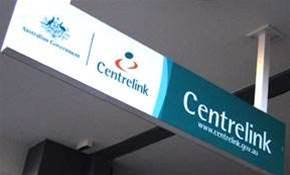A senate committee will investigate Centrelink's automated data matching process after thousands of wrongly-issued debt notices were sent out to welfare recipients.

The Greens and Labor party today successfully secured a motion to have the upper house's community affairs references committee take a closer look at the controversial data matching program, following thousands of reported errors.
The committee has been tasked with looking into the program's scope, cost-benefit analysis, contracts, and implementation by May 10.
It will specifically scrutinise the system's impact on those affected by the process, such as jobseekers and people with disabilities, as well as Centrelink's management of people's records and how it has communicated potential debt to individuals.
The committee will also look into the adequacy of the Centrelink complaint and review process for those who claim to have been wrongly accused of owing money; how well the government has responded to concerns about the process; and the system's error rate.
The Department of Human Services' management of "online compliance intervention" will also be scrutinised.
"The automated debt recovery system has been a disaster and now the government has to explain how it went so wrong," Greens senator Rachel Siewert said in a statement today.
"The lack of human oversight, the onus of proof being on the recipient, the catalogue of experiences by struggling Australians who have been told they have a debt when they do not, the failing infrastructure that means people can't get through to Centrelink on the phone and on the website, all of this must be explained now in a Senate hearing."
Siewert, chair of the committee now tasked with the inquiry, promised "no stone will go unturned" in its investigation of the Centrelink debt recovery program.
The federal government has repeatedly defended the system and claimed its high error rate was part of the platform's design. At least 20 percent of issued debt notices have been wrongly calculated.
Many people receiving letters outlining income discrepancies say they are being hounded by debt collectors for money they don't actually owe, as the platform is unable to match business names with trading names, meaning it will record a person as having worked two jobs instead of one.
The government has refused to make changes to the system, which matches income reported to Centrelink with income reported to the Australian Taxation Office to identify overpayments.
Federal Ombudsman Colin Neave has commenced an own-motion investigation into the issue.


_(20).jpg&h=140&w=231&c=1&s=0)

_(33).jpg&h=140&w=231&c=1&s=0)
_(28).jpg&h=140&w=231&c=1&s=0)





 iTnews Benchmark Awards 2026
iTnews Benchmark Awards 2026
 iTnews Executive Retreat - Security Leaders Edition
iTnews Executive Retreat - Security Leaders Edition
 iTnews Cloud Covered Breakfast Summit
iTnews Cloud Covered Breakfast Summit
 The 2026 iAwards
The 2026 iAwards












_(1).jpg&h=140&w=231&c=1&s=0)



